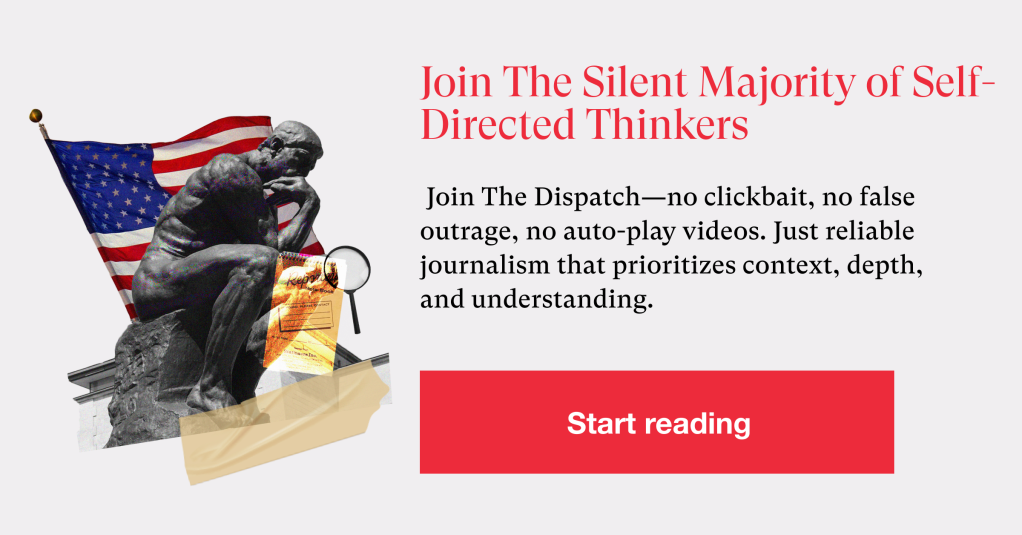Turn any article into a podcast. Upgrade now to start listening.
Premium Members can share articles with friends & family to bypass the paywall.
I recently read The Feeling of Iron, a tale of Nazi hunters in the 1980s written by the novelist Giaime Alonge and translated from the Italian (Il sentimento del ferro) by Clarissa Botsford. It is a decent but unremarkable little thriller that came highly recommended by a review in the New York Times, the recommendations of which I will henceforth devalue slightly.
Alonge is a professor at the University of Turin; Botsford studied at Cambridge; the book was published by Europa Editions, which is a real publishing house. And it contains a great many stupid errors, some of them merely typographical, some of them intellectual.
This isn’t a book review and it is not going to be (very much of) another of my exercises in firearms pedantry, but the gun-nuttery is relevant to another point here, so bear with me briefly.
As a non-paying reader, you are receiving a truncated version of Wanderland. You can read Kevin's full newsletter by becoming a member here.
The story moves between Holocaust scenes in the 1940s and the Contra insurgency in the 1980s, trafficking in a fair number of cheap clichés along the way (a pedophile priest whose abuses add nothing to the plot except another child rape in a story that wallows in many others; that old canard about the CIA being somehow behind the introduction of crack into Los Angeles in the 1980s, etc.) with a minor plot point involving a shell casing ejected by something identified as a “9mm revolver” outfitted with a silencer. You won’t need to be a gun-nut to see the problem there: While 9mm revolvers are a real thing, they are pretty rare (the 9mm round was not designed for revolvers and does not work especially well in them), and as far as I can tell there were none at all in the 1940s, when that scene is set. Sound-suppressed revolvers are rarer still—it is difficult as a matter of design to effectively suppress a revolver. Suppressed handguns of any kind were still pretty exotic during World War II—exotic enough that “Wild Bill” Donovan apparently felt the need to stage a demonstration of one for Franklin Roosevelt, living up to his nickname by firing one without warning in the Oval Office.
More to the point, revolvers do not eject shell casings, so an assassin using one would not have to think about picking up his brass.
Your average voter out there, walking around with his mushy-brained and half-educated opinions about this and that, doesn’t need to know a great deal about firearms. Democracy insists upon enfranchising the ignoramuses, who also get a vote on any number of other issues about which they know little or nothing. Two cheers for democracy and all that. But if you happen to be writing, translating, editing, or publishing a book about two military conflicts, and if that book from time to time delves into details about the weapons used in those conflicts, then, in that case, you might want to know something about the subject. Intellectual tidiness is desirable in and of itself, of course, but on purely literary grounds, errors of that sort pull the more informed kind of reader out of the story—the analogous case is science-fiction writing that gets the basic science wrong. It doesn’t work as literature.
It also doesn’t work as argument.
There is a whole rhetoric of mockery deployed in the gun-policy debate, and you’ve probably heard examples of it, the idea being that gun-rights advocates who correct people about the difference between a clip and a magazine or a semiautomatic weapon and a fully automatic weapon were just weirdos who are trying to avoid talking about the real issues—as though the technical aspects of firearms design weren’t the actual issue. Ignorance about firearms is taken as a kind of badge of honor, a sign that one is not one of those people—the unwashed.
The root issue is snobbery. If you know any music snobs or movie snobs, then you may have observed that a snob is not obsessed with his own taste in music or movies—he is obsessed with your taste, with everybody else’s taste, and takes pleasure not from the things he enjoys but from heaping scorn on the things other people enjoy that he judged contemptible. People who actually know things and who have a genuinely cultivated critical sensibility tend to be the opposite of High Fidelity-style ranking-list snobs: My friend Jay Nordlinger, who is a classical music critic when he is not doing one of his four other jobs, is the least snobby person you will ever meet when it comes to music. A critic is interested in music—a snob is interested in what his choice of music says about him.
Snobs of that kind do not make very good intellectuals, a word that I am here using broadly to include journalists, novelists, translators, book editors, and such. Both opinion journalism and cultural criticism in our time are deformed by the infantile self-obsession of columnists and critics who are less interested in presenting interesting observations or compelling writing than they are in cultivating a particular self-image, the crippling notion of “personal brand” having seeped very deeply into our assumptions about what it is journalists are there to do.
The unspoken question is: What does this say about me? It is mad and tedious: Am I the sort of person who likes Taylor Swift’s latest album? Am I the sort of person who toes the conventional progressive line on trans issues? Am I the sort of person who now talks about “abundance” as though it were a new idea? Etc. When the editor of the New York Times opined that his writers “don’t quite get religion,” he was making a genuine confession—but he was also making a statement, one not entirely lacking in self-satisfaction, about what kind of people work at the Times. (The right kind, you know.) Journalists and critics have a hard time seeing the subject because they are standing in their own way and cannot get a good view of it through themselves.
Journalists—and novelists and academics and such—are meant to be curious. But there are certain matters, usually involving social distinctions, that seem to provoke a kind of profound incuriosity in a certain kind of person. Bill Maher (to repeat an example I’ve used before) managed to make an entire film about the role of religion in modern life without learning very much about religion. The principle of the “Ideological Turing Test” holds that you do not really understand a dispute until you can argue the other side of it in a way that would sound convincing to a person holding that view. How many people who favor abortion rights or stronger gun control can make the opposite case in anything other than the most superficial cartoon terms? (You know: You oppose abortion because you hate women and you like guns because of some gonadal insufficiency.) We would be better off if we did a little bit more work understanding what people actually think (and why) rather than inventing arguments that are designed to make us feel virtuous in comparison.
A note for readers: I am out doing some reporting this week and am aware of the irony in the fact that my wandering sometimes interrupts the production of Wanderland, which will return to its usual form next week.








Please note that we at The Dispatch hold ourselves, our work, and our commenters to a higher standard than other places on the internet. We welcome comments that foster genuine debate or discussion—including comments critical of us or our work—but responses that include ad hominem attacks on fellow Dispatch members or are intended to stoke fear and anger may be moderated.
With your membership, you only have the ability to comment on The Morning Dispatch articles. Consider upgrading to join the conversation everywhere.